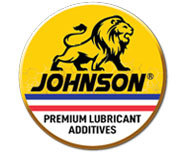Oxidation is a key oil degradation mechanism. And, knowing when an oil has reached the end of its useful life is crucial to extending the service of the hardware it is designed to protect.
When you need to be certain that your oil will keep doing its job until the next scheduled maintenance - and beyond - you need a partner with an extensive understanding of oxidation mechanisms.
Oxidation is an inevitable result of exposure to high temperatures and pressures. For example, those found in the highly reactive environments of the piston zone and sump of modern engines. When an oil is oxidised it becomes more acidic and undergoes destructive physical changes. These changes can result in the formation of sludge and varnish leading to loss of performance and ultimately hardware damage.
Engine manufacturers already value our expertise. Our antioxidant technology is designed to interfere with the oxidation mechanism, vastly reducing the rate of oil deterioration. As a result we’re not only helping to protect the hardware but also to extend lubricant life and maintenance intervals, which all helps to reduce total cost of ownership.
However, different combinations of Infineum antioxidant technology can also be tailored to deliver benefits optimised for other environments or applications.
By working closely with our customers, Infineum has been able to develop a number of innovative solutions. For example, in high pressure stationary gas engines, that may be running on severe fuels and situated in remote locations. Here oxidation control is an essential parameter that enables the lubricant drain interval to be tailored to match scheduled maintenance. These hard working lubricants help to keep engines reliably in service for longer and to reduce running costs, without increasing the risk of engine damage.
This understanding and knowledge can be applied to other challenges, let us know yours. Contact us here.
Back to top



